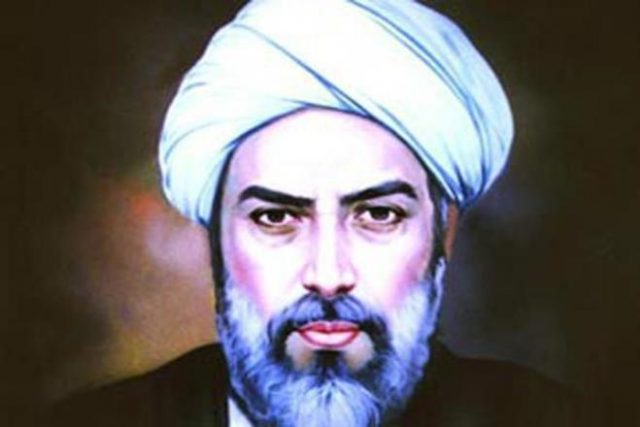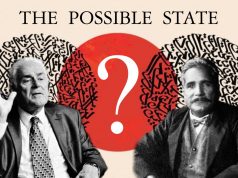Louis Althusser (1918-1990) was one of the ever influential post-war French Marxian philosophers, who had influenced his contemporaries like Gilles Deleuze (1925-1995), Jacques Derrida (1930-2004), Jacques Ranciere (1940-) and other scholars like Etienne Balibar (1942-), Pierre Macherey (1938-) and Terry Eagleton (1943-) who later spearheaded the re-configuration of French philosophy if not Western philosophy in its totality. All was this of his theoretical solemnity, intensive and hyper-radical philosophical insights which engaged in violence with the history of philosophy from its inception, even all it was highly inaccessible to multitude. All his works and thoughts were fundamentally dedicated to Trans-locate Marxism beyond all its limitations and tensions for changing spatio-temporal necessities. For that he critically engaged with Marx, Engels and their alleged philosophical predecessors like Hegel, Feuerbach and Spinoza.
For him, it was Marxism a new philosophy which gained its philosophical existence from the historical void which was left by the sequential philosophers starting from the Peripatetic theoretical premise. He admits the theory of Jean Paul Sartre (1905-1980) in this particular space, which is according to him only there were (and are) three possibilities for philosophy – Idealism, Materialism and Marxism – and the history of philosophy till Marx was circuiting the first two, and only by the manifestation of Marx the final possibility got revealed in the history. Therefore, it is Marxism the last and ultimate possibility of philosophy and there is not a philosophy after Marxism and by its entire culmination it is Marxism the philosophy of this time. As for all others, too for him, it was Hegel an utter failure in laying foundation to a historically un-parallel philosophy. From this philosophical velocity, he argues following Michael Foucault (1926-1984) that Marxism was at a time historical and anti-historical phenomenon.
As to framework all his like kind arguments, by his later period, developing Friedrich Engels, he re-constructed the ‘End of Philosophy’. To abridge, it is, following Marx’s revolutionary proclamation “The philosophers have only interpreted the world, in various ways. The point, however, is to change it” he argued that all those interpretations were the repetitions and re-presentations and were not innovations or re-configurations. Adding to it the hyper conception of Sartre, that is of the Marxism’s being of the ultimate philosophy, he stated that the philosophy did not inevitably have a history till Marxism and Marxism was a post-philosophy which keeps a high proximity to the classical philosophical phenomenal history with extreme rebellion to theoretical premise of the philosophical history. For, the history for him was the material change and alteration of an object or a philosophical idea and was not related to time and existential fluctuation. That is, to short, his philosophical premise was centered on pre-Sadrian philosophical school which argues the changes can only be occurred in effects and not causes.
But Mulla Sadra or Sadr-ul-Din Shirazi (1571-1635), the greatest of all the Islamic philosophical scholars from the post Golden Age of Islam, exposed the limitation of all in its totality and introduced ‘trans-substantial motion’ in beings. To cite here the movement history, particularly of philosophy, is all in time and existential fluctuation. According to Mulla Sadra does the philosophy have history in contrast to the post-philosophical conceptions of Louise Althusser. In counter to the post-philosophical cognitive map of Althusser, Mulla Sadra’s philosophical history incepts from Prophets who taught along with the divine revelations the philosophy which was known as Illumination philosophy, which was later re-introduced by Sheikh al Ishraq Shihab-ul Din al Suhrawardi (1154-1191) after it once diminished, and was not from Peripatetic school. As it is, Mulla Sadra delved into all the limitations of Aristotle’s Peripatetic, to which Althusser is highly adhered to even of his unconsciousness and Suhrawardi’s Illumination philosophy and re-configured all it with high potential philosophical grammars. So, with the two-fold legal theories of Mulla Sadra it is possible to develop a counter argument to Althusser’s ‘End of Philosophy’ and expose its fundamental limitations. Those are trans-substantial motions and gradation and de-gradation of existence.
Trans-substantial motion is the motion of substance or cause rather than accident or effect, which was previously rejected by philosophers. Philosophers admitted only the possibility of presence and chance of motion in four fold accidents- those are quantity, quality, position and place- and considered substance of objects which was the nucleus of all those as being fixed and motionless. But Mulla Sadra demonstrated that if the substance of an object is free and impossible of motion too, its accidents would be impossible of motion. Because the relation between substance and accidents is the same of what it is between cause and effect. And it is impossible to detach the effect from the cause. Therefore it is impossible for the accidents to have a manifestation which its cause does not have. In Peripatetic philosophy it was impossible to demonstrate such an event. And Ibn Sina (980-1037), one of the most renowned Islamic philosophers even argued that if the substance of an object changes it becomes another object and with the being of another object it loses its history, since it is not the previous being. Such problems arise in the sophist philosophy proposed by Muslims like Abu Hasan al Ash’ari (874-936) and other Ash’arite theo-philosophers in their ideas of ‘continuous creation’, ‘renewal of similars’ and ‘moment existence’. But too it does not invalidate Mulla Sadra’s philosophy, as to resolute this crisis Mulla Sadra introduces his next philosophical theory- the ‘gradation of existence’.
In Mulla Sadra’s existential philosophy, developed from later Illumination philosophy, the existence is principal than form and all the creatures have same existence. In all forms, whether homo or heterogeneous, that existence manifests. Even with the difference of forms there exists variety of existence, those existence are common for all. But the difference, in Mulla Sadra’s and other Illumination philosopher’s position, happens due to the strength and weakness of the same and single existence. In short, what unites and differentiates the existents is the same being. So, the existence is at a time plural and unique. To make into a formula, it can be assessed that ‘form or difference refers to the fluctuation of existence.
In solving the concept of ‘End of Philosophy’ with transcendent philosophy of Mulla Sadra it could be assessed that the philosophy does have history. Because, according to Louis Althusser, as he considers material change and alteration as his ontological scale, philosophy has a historical continuity in its phenomenal sense and lacks history in its pure philosophical history. But in Mulla Sadra’s philosophy as time is, in act, the principal or cause of history, without its change the history can’t, at any way, change and will change if any minor change happens to time. Because, philosophically the effect, that is the history of an object, can’t have an existence independent from the cause. So if the phenomenal history of an object or a philosophical idea changes, inevitably its philosophical history also changes. So, even if the philosophy, in Althusser’s concept, from Peripatetic philosophy to Hegel does not undergo a paradigm shift, if to adopt the lexicon of Thomas Kuhn, which is the mere repetition or re-presentation of existing philosophies, the ‘Plato to Hegel philosophy’ deserves a history as it is located inside its cause, that is time.
It is the change or motion of history justified by the change of time. And then arises the possible question that if the motion and change happens in substance, according to Mulla Sadra, the change is surely happening in the existence time. So, when the time changes it will, surely, change the substance of philosophy itself. That is, the existence of philosophy is at every time anti-historical or free of historicity. But this philosophical crisis only arises in the Sophist theo-philosophical school, which argues the infinite and continuous replacement of beings. And according to Mulla Sadra, it is true that existence of time is changing, but is not in a sense of total replacement with another existence but with the fluctuation of intensity within the existence. In a perspective, even when the cause, that is time, changes itself and thereby the changes in philosophy occur, the history is not replaced anti-historically but transformed historically. So, a dichotomous correlation does not occur in between the transformation, if not alteration, of time the cause and the historical continuity of its effect, that is the philosophy.
To conclude, the ‘End of Philosophy’ and the stigmatization of Marxism as the post-philosophy are absurd concepts within the paradigmatic matrix of Mulla Sadra’s Transcendent philosophy, which is the most developed, dynamic and critical stream of Islamic philosophy to the present as it circles the limitations which disturbed the Islamized Peripatetic philosophy and idealized Illumination philosophy and put forth the most philosophical arguments with the unification of intuition and intellect with logical demonstration, which did not had a pre model in the history of philosophy. And the rejection of history to philosophy by Althusser to single out the trans-historical role and presence of Marxism which too stands as some methodological apparatus to his or in general, to post-Althusserian Marxists are highly vague. And as a culmination of its foundational limitation, it can no more produce or re-produce any new changes in the world as Marx intends with his ‘Universal Marxism’.
(This was originally published here)






